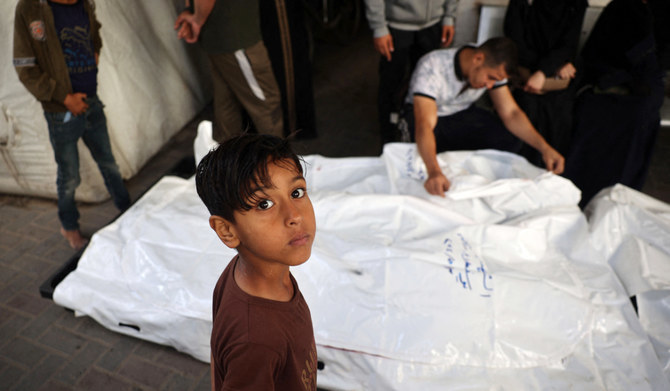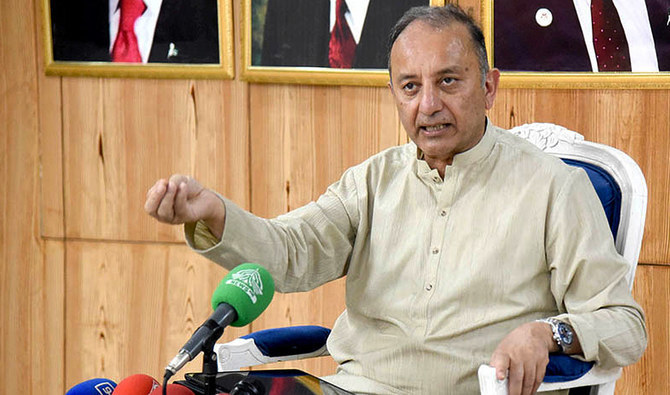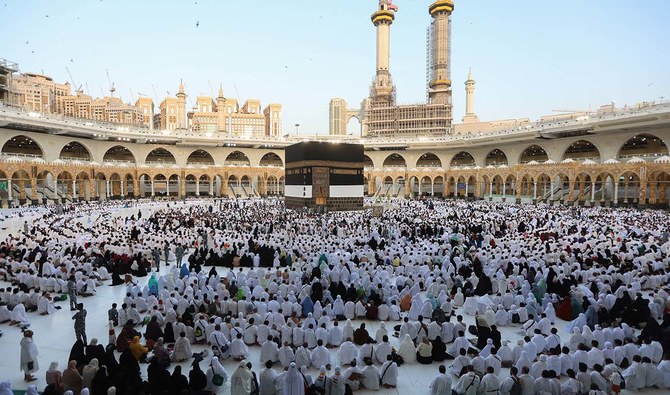A GALLUP Pakistan poll released on Feb. 15, 2013 shows 92 percent of Pakistanis disapprove of US leadership. Similarly, a recent report by the Pew Research Centre said roughly three out of four Pakistanis consider the United States an enemy — up from 69 percent last year and 64 percent three years ago.
If polls and perceptions are to be believed, Pakistan and the United States seem worlds apart when it comes to how to tackle the question of war and peace because a trust deficit dominates their tense bilateral ties. However, when ordinary Pakistanis and Americans meet, they bring down many stereotypes about each other, narrating stories that are different than the popular perceptions. This is also the story of Arasalan Asad, a senior producer and reporter with Pakistan Television (PTV).
When Asad applied to “study and take an active part in journalism as practiced in the US,” he was clear how he wanted to spend his four weeks. He wanted to explore the opportunity of working in a Western media outlet to understand the different facets of American life and how they relate to the question of Pakistan.
Under the program for Journalists, announced by the United States Educational Foundation in Pakistan and implemented by the International Center for Journalists (ICFJ), more than 74 journalists across Pakistan spent four weeks in US newsrooms in 2011 and 2012. Set to continue for another two years, a total of 160 Pakistani journalists will have the opportunity to work in the United States.
Similarly, American journalists visited Pakistan for a two-week program to “learn the realities of Pakistani journalism and national life,” according to ICFJ.
Today when Asad narrates his work and impressions during the one-month stint with Bloomberg TV in New York, he sometimes feels like an odd man out. Though his friends jokingly call him an “American agent,” he understands that his narration of American life, completely at odds with popular anti-American impressions in Pakistan, is the reason for the unwelcoming sobriquet.
“The first shock was that ordinary Americans are not worried about Pakistan. Most didn’t know where the country was on the map and those who made a guess placed it in Middle East,” says Asad. “They are more concerned and worried about their local issues.”
He remembers the day he worked alongside with American journalists at Wall Street wearing traditional Pakistani dress, Shalwar Kameez, with a small replica of the green and white Pakistani flag on his chest. “A number of people inquired about the flag’s colors. When I told them that white represented minorities of Pakistan, they were pleasantly surprised.” By interacting, Americans came to know a Pakistan beyond the headlines.
After a few days in the Bloomberg TV studio, Asad made a beeline for Coney Island to explore the lives of Pakistani Americans. “It is rightly called a mini Pakistan. With restaurants serving traditional Pakistani meals, billboards in Urdu, women with head scarves; you feel you are roaming in Rawalpindi or Lahore.” It was quite different from the perception that Pakistanis have difficulty living in the United States.
Narrating these impressions, Asad encounters naysayers who point to the United States’ “policy of expansion” — Iraq, Pakistan, and the so-called “endgame” in Afghanistan as American troops plan a pullout.
“Relations between states are complex and driven by a number of varying economic and geographical interests. But when people meet people, they understand life is not all about ‘them versus us’,” says Asad.
He adds when American journalists visit Pakistan, they also go through a learning curve. “They come to know that Pakistan is much more than terrorism and fundamentalism.
They are fascinated by its diversity of culture, its natural beauty and the hospitality of the people.”
When he had an opportunity, Asad frankly discussed with American officials where their policies went wrong in “our part of world and how people in Pakistan and Afghanistan have suffered.” For him this may not be a game changer when it comes to US policy, but at least a different view was conveyed.
Knowing that the uneasy relations between Pakistan and the United States will continue to ebb and flow as American troops prepare to leave Afghanistan, he thinks that people-to-people contact is the only way out of the practice of demonizing each other.
US-Pakistan ties: Need to plug trust deficit
US-Pakistan ties: Need to plug trust deficit
Pakistan face Korea in Azlan Shah field hockey tournament today

- Pakistan began tournament on winning note after beating Malaysia 5-4 on Saturday
- The 30th edition of the prestigious tournament is being played in Malaysia’s Ipoh city
ISLAMABAD: Pakistan will face Korea in the Sultan Azlan Shah field hockey cup today, Sunday, after beginning the tournament on a winning note a day earlier by beating hosts Malaysia, state-run media reported.
The 30th edition of the prestigious field hockey tournament is being played in Ipoh, Malaysia from 4-11 May. The cup will be contested between six teams, namely Canada, Japan, Malaysia, New Zealand, Pakistan and Korea.
Pakistan’s national hockey team made a triumphant start to the tournament on Saturday, defeating hosts Malaysia by 5-4 in a thrilling match.
“The Pakistan hockey team would face Korea in their second match on Sunday (May 5),” state-run media Associated Press of Pakistan (APP) reported.
Pakistan have the upper hand against Korea as far as the head-to-head record is concerned. The South Asian country has won 14 matches in total against Korea while the latter has won eight. Both teams have drawn with each other six times.
Pakistan’s hockey team came from behind on Saturday to down Malaysia 5-4 to win the contest. Sufiyan Khan, Pakistan’s drag flicker, scored a hat-trick while Zakriya Hayat and Abu Bakar Mahmood contributed one goal each to the team’s victory.
The Sultan Azlan Shah Cup 2024 will see a round-robin stage at first where all six teams will play each other once, followed by positional playoffs.
The teams finishing in the bottom two places of the league stage will contest in a fifth-place classification match. Teams finishing in third and fourth place in the pool stage will compete for bronze, while the top two teams will play in the final for the title.
The match is scheduled to begin at 3:15 p.m. Pakistan Standard Time (PST).
‘Substantial progress’ in Cairo talks on Gaza truce

- Hamas delegation, Egyptian mediators discuss prospects for truce in war-riddled Gaza
- Israel has killed over 34,650 Palestinians in Gaza, wounded over 77,000 since Oct. 7
CAIRO: Talks in Cairo involving a Hamas delegation and Egyptian mediators have made substantial progress toward achieving a ceasefire in Gaza, according to a high-ranking source.
The source, who preferred not to be named, told Cairo News Channel that Hamas representatives and an Egyptian security delegation have reached consensus on many contentious points.
Hours before the Hamas delegation’s arrival in Cairo on Saturday, Gen. Abbas Kamel, chief of Egypt’s General Intelligence Directorate, received a phone call from the movement’s leader, Ismail Haniyeh, concerning the negotiations.
Security and political expert Ahmed Mustafa told Arab News: “According to my information, Hamas has agreed to the first phase of the ceasefire deal in Gaza.
“This includes the release of a number of hostages, with the assurance that Israel will fully withdraw from Gaza after 124 days, upon completion of the three stages of the major agreement being coordinated here in Cairo.”
Mustafa also said the Hamas delegation in Cairo is expected to inform the Egyptian side of its agreement with only minor amendments.
“I believe that Hamas has agreed on some terms with the Egyptian mediators now, and previously with the Qatari mediators under American guarantees,” he said.
However, Mustafa said that Israel’s refusal to end the war in Gaza as part of any hostage deal and its determination to eliminate what remains of Hamas remain “major points of contention.”
According to Mustafa, another point of disagreement concerns allowing the entry of dual-use materials into the enclave, for example humanitarian supplies that could also be used for combat purposes, such as fuel.
He said that the first phase, which Hamas “has tentatively agreed upon, will last up to 40 days, during which up to 33 of more than 100 Israeli hostages held in Gaza since Oct. 7 will be released.”
The second phase will last at least six weeks, with both sides agreeing to release a larger number of hostages and prisoners, and also committing to a longer halt to the fighting.
Aboud Jamal, a researcher on Palestinian affairs, told Arab News: “Hamas announced on Friday evening that settlements had been reached, and a delegation from the movement would head to Cairo on Saturday to secure an agreement in a way that meets the demands of the Palestinians.”
Jamal added: “It is clear that the coming days will witness an agreement to cease fire along with the release of some Israeli hostages.
“The only remaining issue is the stance of the Israeli government, which seems to want to prolong the war to maintain (Benjamin) Netanyahu’s government following the recent protests against him in Israel.”
Jamal said the Israeli government stands to benefit by obstructing any agreement.
“So, by sending its delegation to Cairo and discussing its agreement to terms in the prospective deal through mediators, Hamas has preempted the Tel Aviv government, a move for which the movement’s leaders are to be commended.”
He added: “It appears that Egypt truly stands with the Palestinian people and is supportive of reaching an agreement that ensures a ceasefire to save what can be saved of the lives of Gaza’s residents.
“This was evident from the statement issued by Hamas before its security delegation headed to Cairo, stating that Hamas leader Ismail Haniyeh appreciates the role that Egypt is playing.”
Australian police shoot boy dead after stabbing with ‘hallmarks’ of terrorism

SYDNEY,: Australian police said on Sunday they had shot dead a boy after he stabbed a man in Western Australia’s capital Perth, in an attack authorities said indicated terrorism.
There were signs the 16-year-old, armed with a kitchen knife, had been radicalized online, state authorities said, adding they received calls from concerned members of the local Muslim community before the attack, which occurred late on Saturday night.
The attack, in the suburb of Willetton, had “hallmarks” of terrorism but was yet to be declared a terrorist act, police said.
“At this stage it appears that he acted solely and alone,” Western Australia Premier Roger Cook told a televised press conference in the state capital Perth, regarding the attacker.
The victim, stabbed in the back, was stable in hospital, authorities said.
Prime Minister Anthony Albanese said he had been briefed on the incident by police and intelligence agencies, which advised there was no ongoing threat.
“We are a peace-loving nation and there is no place for violent extremism in Australia,” Albanese said on social media platform X.
The incident comes after New South Wales police last month charged several boys with terrorism-related offenses in investigations following the stabbing of an Assyrian Christian bishop while he was giving a live-streamed sermon in Sydney, on April 15.
The attack on the bishop came only days after a stabbing spree killed six in the Sydney beachside suburb of Bondi.
Gun and knife crime is rare in Australia, which consistently ranks among the safest countries in the world, according to the federal government. (Reporting by Sam McKeith in Sydney; Editing by Christian Schmollinger and William Mallard)
Saudi business delegation to arrive in Pakistan today to explore investment opportunities

- Saudi deputy investment minister, representatives of 30-35 Saudi companies part of delegation, says Pakistani minister
- Saudi Arabia recently reaffirmed its commitment to expedite investment package for Pakistan worth $5 billion
ISLAMABAD: A high-level Saudi business delegation led by the Kingdom’s deputy investment minister will arrive in Pakistan today, Sunday, to explore investment opportunities in various economic sectors, Federal Minister for Petroleum Musadik Malik confirmed a day earlier.
Pakistan and Saudi Arabia, who enjoy fraternal ties rooted deep in shared culture, religion and economic cooperation, have witnessed a flurry of official visits in recent weeks. Saudi Foreign Minister Prince Faisal bin Farhan traveled to Islamabad earlier in April before Prime Minister Shehbaz Sharif’s two-day visit to the Kingdom to attend a World Economic Forum meeting where he met Saudi officials.
“The Saudi Deputy Investment Minister is visiting Pakistan tomorrow,” Malik, who is also the focal person for Saudi-Pak bilateral collaboration, told reporters at a news conference in Lahore on Saturday.
“He is bringing representatives from 30 to 35 companies whose CEOs are coming here.”
The Pakistani minister maintained his country had always cherished cordial ties with the Kingdom, though it had not managed to turn this “relationship of friendship into a relationship of stability and progress.”
He said Pakistan mostly discussed its financial concerns with the Saudi authorities and requested their support. However, the present government wanted to change that by focusing its bilateral conversations on mutually beneficial progress and development, not aid and assistance.
The minister said the two sides discussed a new refinery project during the recent engagements that would be used for export purposes to earn foreign revenue. Additionally, food security was also discussed to further strengthen Pakistan’s agricultural sector.
He informed that Prime Minister Sharif wanted the country’s “private sector to take the lead on this path to progress.”
“That is why Saudi investors have been invited to come here,” he continued. “They will sit with Pakistani companies and figure out ways to connect the Pakistani talent with the capital and investment needed at the international level for the IT revolution.”
Malik said the bilateral collaboration would primarily benefit small businesses, particularly the technology companies established by young students who were likely to get a significant amount of investment from Saudi entrepreneurs.
He expressed optimism that chemical, energy and agricultural companies would also gain an advantage from the ongoing bilateral collaboration between the two sides.
Apart from Pakistan and Saudi Arabia’s fraternal ties, the Kingdom is particularly important to Islamabad as it is home to over 2.7 million Pakistani expatriates and serves as the top source of remittances to the cash-strapped South Asian country.
Both Pakistan and Saudi Arabia have been closely working to increase bilateral trade and investment deals, and the Kingdom recently reaffirmed its commitment to expedite an investment package worth $5 billion.
Pakistan urges Hajj pilgrims to get vaccinated five days before departure to Saudi Arabia

- Pakistani pilgrims require to vaccinate themselves against meningitis, seasonal influenza and polio
- The vaccinations are done at Hajji camps during the day in all major cities around the country
ISLAMABAD: Pakistan’s religious affairs ministry on Saturday asked Hajj pilgrims to get themselves vaccinated at least five days before departure to Saudi Arabia to avoid inconvenience.
Hajj pilgrims must comply with strict vaccination requirements set by the Saudi Ministry of Health to ensure public safety during one of the world’s largest annual gatherings.
Mandatory vaccines include the meningitis shot, with additional recommendations for the seasonal influenza vaccine, while travelers from regions prone to yellow fever and polio must also provide corresponding immunization certificates.
These precautions are vital to prevent the spread of infectious diseases among millions of pilgrims converging in the kingdom from across the globe.
“The intending pilgrims are advised to visit their respective Hajji camps five days (from 9 am to 5 pm) before their flight to receive vaccination against meningitis, seasonal influenza and polio, besides obtaining a yellow card,” the state-owned Associated Press of Pakistan (APP) news agency quoted a statement issued by the ministry.
“This is a mandatory requirement,” it added.
Hajj is one of the Five Pillars of Islam, which include the core beliefs and practices every Muslim is expected to follow.
The pilgrimage is required to be performed at least once in a lifetime by all adult Muslims who meet the necessary conditions of health and financial stability to travel to and perform the rituals in Makkah.
Pakistan plans to launch the special Hajj flight operation from May 9 that will continue until June 10.












